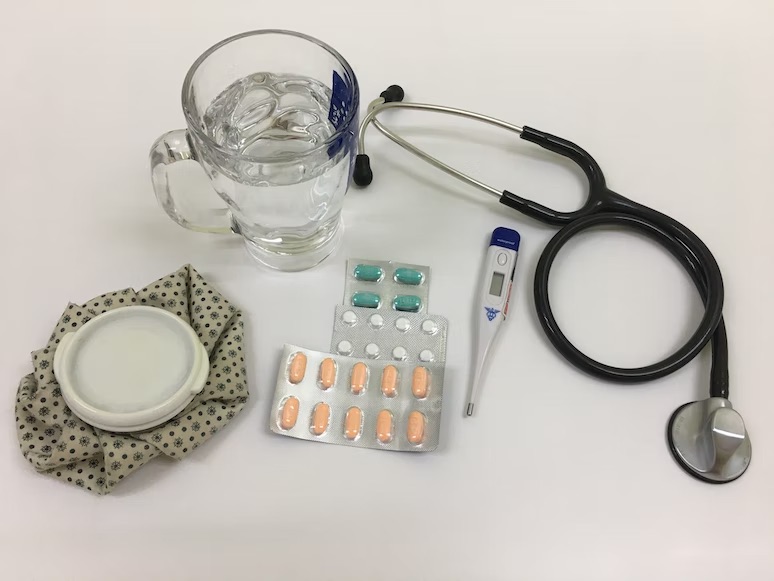For many getting a virus at some point during winter is practically inevitable, so how do you fight the flu? We give you a round-up of the tried and tested ways you can alleviate the symptoms.
What are the symptoms of flu?
Generally speaking, symptoms of flu tend to develop within one to three days of becoming ill with the virus. The main differences between flu and a common cold are that flu tends to come on quickly, involve fever and muscle aches, making it difficult to get on with daily activities.
Colds mainly affect your throat and nose, are reasonably mild when it comes to symptoms so that you can still continue with work, and come on gradually.
If you think you have the flu, there are other symptoms to look out for. It could be any of the following combination:
- A sudden fever – this is a temperative of 38c
- Limb or joint pain
- Tiredness
- Headache
- A sore throat
- Chills
- A dry, chesty cough
How can I treat it?
We imagine you’ve heard the saying feed a cold, starve a fever but does this old wives’ tale have a hint of truth to it?
Get plenty of rest
Admittedly a slight boring option that has been said a million times before, it is for good reason. Trying to fight the infection makes your body exhausted and you will feel extremely tired. Rest is particularly vital if you are suffering from a fever, It is recommended that you stay at home at least 24 hours after your fever has gone
Stay hydrated
Keeping hydrated whilst you have flu is integral to fighting the illness. Normally, the cause of fever is the onset of infection, so sipping hot teas or hot chocolates as well as water, will help you stop getting dehydrated.
Chicken soup
Studies have shown that having a bowl of chicken soup can help to alleviate flu symptoms by unblocking the nasal passage and increasing airflow.
Worth a try, even if to soothe your throat and have a bit of comfort food when you are feeling groggy.
Eat Well
Those who eat healthier tend to experience fewer symptoms and less likely to become ill in the first place. To ensure a speedy recovery, eat healthy spicy dishes (this can help with that congested, bunged up nose of yours) and fruits known for their high vitamin C, such as oranges.
Gargling
A simple but effective tip: let a teaspoon of salt dissolve in some boiled water, and then leave it to cool a little so that you can gargle it. Taste wise, it may not be too appetizing, but it’s known to be a great way of easing sore throats.
Medication
Taking paracetamol or anti-inflammatory medicines such as ibuprofen can help with lowering that pesky temperature, as well as relieving all over body aches.
Menthol products
If your sinuses are all blocked up because of a nasty bout of flu, then try a an over-the-counter menthol-based gel or cream to help open up blocked nasal passages. These can also help with soothing skin under the nose that may be feeling a little delicate due to nose blowing.
Steaming
Steaming can be a cheap and effective way to deal with blocked sinuses associated with the flu. Whether that’s having a steamy shower, or placing boiling water in a bowl and then putting a towel over your head, breathing in the steam will help to open up those blocked nasal passages. This can also ease painful congestion felt in your sinuses.
Do antibiotics work for flu?
Unfortunately, antibiotics do not work for treating flu, as they have no effect on viruses. The only exception, is if complications arise as a result of the illness, like a chest or throat infection.
Flu can generally be treated with over-the-counter medication with no need to visit a doctor if you are generally in good health.
However, if you fit into one of the following categories listed below, it is recommended visiting your doctor to prevent your flu getting any worse.
- If you are pregnant
- If you are 65 or over
- Suffer from a neurological, liver, heart, kidney or lung disease
- Suffer from diabetes
- You have a weakened immune system, as a result of chemotherapy or HIV
If you don’t fit into any of the above categories but experience the following symptoms, it is also worth visiting your GP:
- You experience shortness of breath
- Bringing up blood when coughing
- You start to develop chest pain
- Your symptoms are getting continuously worse
- No signs of improving after a week

